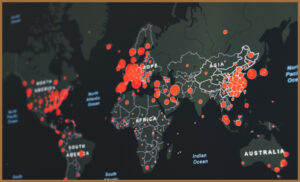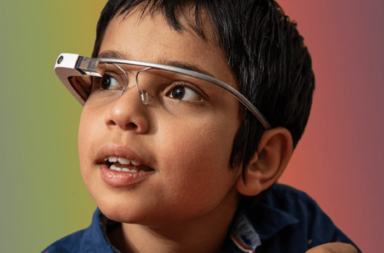As parts of the UK head into another lockdown (including my hometown of Manchester), it seems that the halfway point of the year really wasn’t the halfway point of these bleak times. Nevertheless, the same can’t be said for the world of autism where, despite July holding one somewhat sour note, last month unquestionably saw an increase in positive vibes all around our community.
As is always the case at the beginning of a new month, today I will be your guru guiding you through these interesting occurrences of the weeks gone by and, as usual, links to the full stories can be accessed by clicking on the red titles and the bold headings.
Netflix Airs New Autism Dating Show

When Netflix announced that they were to release a new dating show focused around people with autism, I’ve got to admit, I winced and curled my toes. This is a natural reaction after years of watching similar shows make autistic people out to be unloving buffoons. However, it seems that I may have been a bit quick to judge this latest entry.
In full disclosure, I still haven’t seen Love on the Spectrum but, going off the latest reviews, I feel like a fool for not at least considering it. According to CNN the show differentiates itself through its ‘empathy towards the featured players without [being] condescending towards them’ and The Guardian further commended it for being ‘packed with love, not just of the romantic kind, but from family, friends and community’. Additionally, it seems that Love on the Spectrum isn’t just a ‘dating show’ as it also focuses on established autistic relationships – an interesting wrinkle which I believe makes the show special.
Of course, the proof does remain in the pudding and I don’t feel right recommending something I have only seen a trailer for but, given how much I really did not want this clogging up my newsfeeds, it’s been a nice surprise to see such positivity surrounding it since its release (and kudos to Netflix for putting so much marketing into it and continuing their work with representation).
Do Autistic People Have To Wear Facemasks?

As of July 24th, it’s not just your reusable bags you need to remember when you head down to the local shops as, in the latest endeavour to fight off ‘you-know-what’, it is now mandatory for shoppers to wear facemasks when venturing to the local supermarché – lest they run the risk of a fine of up to £100 and, worst of all, become the local pariah of your neighbourhood.
These new rules aren’t without their exceptions though, so remember that, before you judge others or lock yourself away, there are many exceptions to these rules which directly impact those of us on the spectrum. For example, you do NOT need to wear a mask if you:
- Are under the age of 11
- Have a physical or mental illness that prevents you
- Travel with someone who requires lip reading
- Experience ‘severe distress’ by the prospect of putting a mask on [an understandable addition – which I sadly can’t help but feel is already being exploited]
Nevertheless, just because you fit into these categories this doesn’t necessarily mean the world is your mask-free oyster (I’m looking at you under 11s) as, what too many are forgetting is that protecting yourselves and others around isn’t a punishment, but a team effort to beat the virus as soon as possible.
Autism Friendly Train Travel Across The UK

Even before the global pandemic, just the prospect of jumping on a train could give an autistic person the heebie-jeebies. This is because, while our love for all things on rails may seem at times unbreakable, our disdain for their loud sharp brakes, their busy environments and their nasty habit of being as reliable as an old modem dial-up, can often make the transport system seem overwhelming. Thankfully, as of July 2020, this is all about to change.
Yes, this is the news that all train operators in Britain have now signed up to the Sunflower Scheme; An arrangement which sees those with conditions like autism, pop on a discreet sunflower accessory (lanyard or badge) so that staff (who will now receive training) can recognise the needs of this customer, to give them the best travel experience possible.
Having previously been used with great success in airports around the world, the integration of the Sunflower Scheme is yet another step toward equality and, while it doesn’t change the fact that many other things (such as the quiet zones on trains) are still not properly enforced, it does demonstrate that the transport industry is definitely on the right tracks – ‘woo-woo’ indeed.
Death Rates in People with Disabilities and Autism Double

Sadly, not every item of July’s news was as uplifting. When the new month started our community was greeted by heart-sinking reports that, during the COVID crisis, disabled deaths seemed to have doubled, when compared to statistics from the same time last year.
Amongst those included within the hard to hear figures were many members of our very own community, most notably those who fell in the 55-64 age bracket and those who were considered extremely vulnerable to the current pandemic, for example: the high percentage of autists with underlying respiratory conditions.
Due to the current disorganised nature of the world, the full scope of this report is yet to be understood. However, many are now requesting that government officials launch a full inquiry into figures. Although I am hopeful that this will be achieved, it is more than likely that this investigation will form part of the inquiry into the many potentially preventable deaths which took place in care homes during the crisis; residents of which included patients on the spectrum.
Autistica Appoints First Openly Autistic CEO

Finishing on a brighter note, this month it was announced that, after 5 years at the helm of the good ship Autistica (one of the UK’s largest autism research charities), current CEO Jon Spiers would be stepping away as head of the organisation; in a landmark event which would see him succeeded by the first openly autistic CEO of a major UK charity.
Smashing this major milestone is one James Cusack, the previous Director of Science for Autistica; a leader who, on arrival, wants to use his position to ‘overcome the unacceptable inequalities that autistic people face – listen to the experiences of all autistic people and deliver transformative change based on the best evidence’.
If you haven’t been following Autistica recently, then now is certainly the time to familiarise yourself – especially as many of their most recent developments are all equally noteworthy, including the new autism podcast Discover, as well as a new gaming division: Autistica Play (which recently hosted a brilliant Animal Crossing get together for International Friendship Day).
Carry on the Conversation
That’s it for my thoughts on July’s news. Now I want to hear yours. What did you think the highlight of July was and, if you’re someone who has watched Love on the Spectrum, let me know what you think in the comments below.
Please note, for the majority of next week, I am going to be dealing with some personal errands, so Autistic & Unapologetic won’t return until the 15th. In the meantime, feel free to reacquaint yourselves with some of my old articles, like this fan-favourite: 25 Autism Facts I’ve Learned After 25 Years Being Autistic.
As always, I can also be found on Twitter @AutismRevised and via my email: AutisticandUnapologetic@gmail.com.
If you like what you have seen on the site today, then show your support by liking the Autistic & Unapologetic Facebook page. Also, don’t forget to sign up to the Autistic & Unapologetic newsletter (found on the sidebar on laptops and underneath if you are reading this via mobile) where I share weekly updates as well as a fascinating fact I have found throughout the week.
Thank you for reading and I will see you in 2 weeks for more thoughts from across the spectrum.


